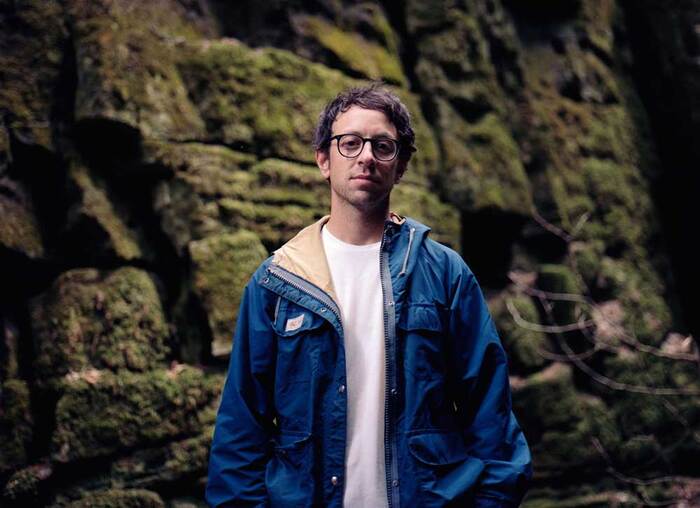Purveyor of: Inquisitive avant-garde nu-jazz
File next to: Brian Eno, Mark Barrott, Boards of Canada
Playing: WL18 Night 3, Sunday, February 18 @ The Garrison. Get tickets here!
Joseph Shabason is a Toronto-based multi-instrumentalist, known for his work in Destroyer, The War on Drugs, and DIANA. His last full-length release, Aytche, is a dive into atmospheric harmonies, exploring challenging motifs through experimental but cohesive layering. Wavelength’s Dora Boras checked in with Joseph to talk about his latest release, ambient music, and the possibilities of healing through composition.
What is Aytche? Could you tell us about the inspiration behind your album title?
I mean, Aytche is whatever you want it to be. It started as a very stupid band joke in DIANA based on a mistyped text message… but it kind of morphed into a catch-all response to any question. Try using it as a response to someone’s question and see what happens.
Do you have a favourite venue to play in Toronto? What would be your ideal venue to perform songs from Aytche in?
My fave venue in T.O. was the Holy Oak… but right now I feel like the Tranzac takes the cake for the venue in the city where the most wonderful music happens. My ideal T.O. venue to play songs from Aytche would definitely be the Tranzac front room, but have it be decorated to look like a forest.
The album deals with some particularly difficult and personal themes. What was it like creating an album concerned with such heavy material? During the process, did you ever have to step away and take a break? Were you interested in music as a method of coping and healing?
I think that making music that dealt with those themes was pretty easy only because I didn’t do it consciously. It just sort of happened. There is a lot of illness in my family so it was inevitable that those issues seeped into my music. Once I started incorporating non-musical issues into the music, it felt really cathartic and natural so I never needed to take a break… For the first time in a really long time, I felt like the music I was making was a transparent snapshot of what I was going through in my life which felt like more of a relief than anything else.
The interview sample in “Westneath” is imposed into the song in a really interesting way, where only some phrases and words are detectable. How did you come across the interview sample in “Westneath?” Why did you leave some parts audible, while obscuring others?
I came across the interview while listening to a BBC archive of interviews with Holocaust survivors and survivors children. This one interview that the Greek son of two survivors gave was particularly rattling and moving. So much of what he was talking about was mirrored in my father’s experience growing up with parents who survived the Holocaust. Where the interview differed was how his parents dealt with grief… specifically, his father’s choice to take his own life. I originally toyed with just putting the interview onto the music without obscuring it but it felt super melodramatic and emotionally manipulative. Ultimately I found it more effective to have it act as a musical texture with only a few key phrases poking out. It also lets the listener form their own narrative about what’s going on rather than have me spell it out for them.
Does ambient music’s ability to be both “ignorable and interesting” (as Brian Eno puts it) make an album like Aytche more accessible to someone not as familiar with ambient and jazz music? Is there something universal about the themes in Aytche?
I guess it really depends on the listener. It’s something that makes it feel really accessible to me but someone else might just find it boring. I’m not really sure if the themes in Aytche are universal, but I do think that the album has moments of joy and grief and anger, so if that doesn’t cover enough emotional material to speak to people on some level, I think I’m shit out of luck. 😉
— interview by Dora Boras

